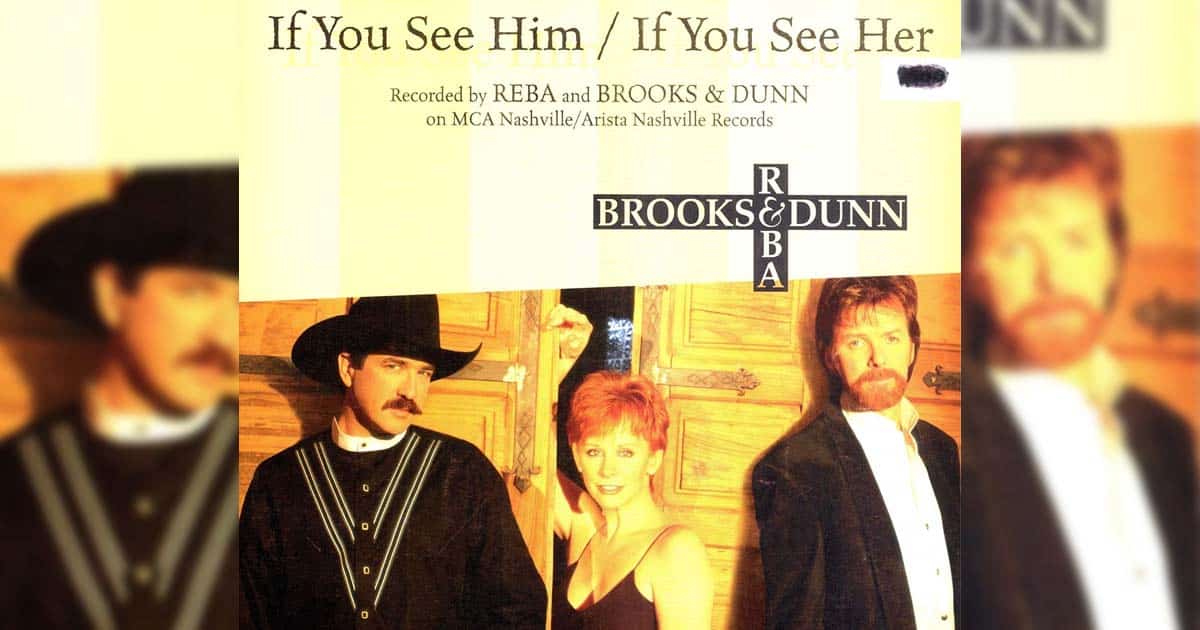
About the Song
“If You See Him / If You See Her” by Brooks & Dunn with Reba McEntire is a hauntingly beautiful country duet that captures the bittersweet ache of love lost but not forgotten. Released in 1998, the song served as the lead single for both Brooks & Dunn’s If You See Her and Reba McEntire’s If You See Him albums. It’s a rare, seamless collaboration that blends two powerhouse voices into one aching narrative, where both sides of a broken relationship speak through others, rather than each other—a subtle detail that adds to the song’s emotional depth.
Lyrically, the song is built around a simple, heart-wrenching premise: two former lovers asking mutual friends to pass along messages they’re too afraid—or too wounded—to say themselves. “If you see her, tell her I’m doing fine / If you see him, tell him I don’t cry.” Each line is laced with pride, pain, and unspoken longing, revealing that both still care deeply, even if neither can say so aloud. It’s a masterclass in emotional restraint, where silence and distance carry as much meaning as the words themselves.
Reba McEntire’s voice, known for its expressive range and emotional precision, brings a trembling vulnerability to her verses. She sounds strong, yet just on the edge of breaking, giving life to a character who’s trying to move on but hasn’t truly let go. Ronnie Dunn, on the other hand, delivers his lines with stoic sorrow, his smooth, soulful voice embodying a man who masks his hurt behind a calm exterior. Together, their harmonies in the chorus feel both intimate and heartbreaking, as if these two souls are singing to each other from across an unbridgeable distance.
Musically, the arrangement is classic late-’90s Nashville: gentle acoustic guitar, steel guitar flourishes, soft piano, and a slow, steady rhythm that never overshadows the vocal performance. The production gives the song space to breathe, allowing the emotional weight of the lyrics to fully settle in.
The song was a major hit, reaching No. 1 on the Billboard Hot Country Songs chart, and is still considered one of the most emotionally resonant country duets of its time. It’s not a power ballad—it’s a quiet storm, where every note and every pause tells a story of love that never really left.